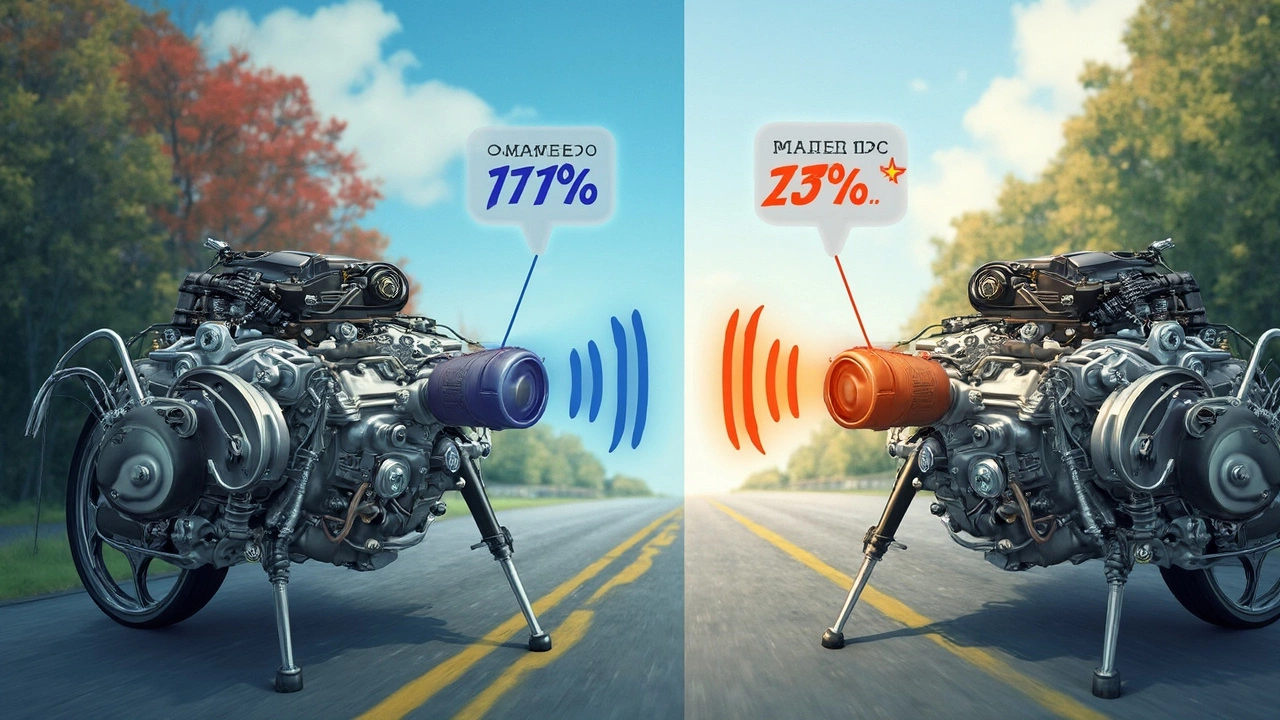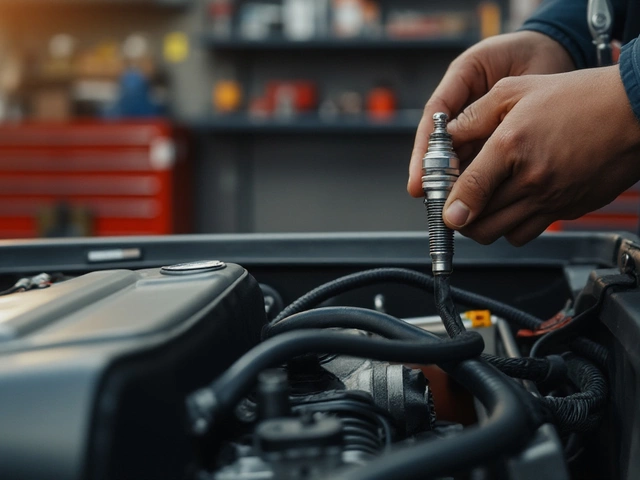People love to mess with their rides—sometimes just for the sound, sometimes thinking it’ll unlock hidden power. Muffler delete’s one of those super popular mods, maybe because it sounds easy: just cut out the muffler, right? But will your engine pay the price for that aggressive rumble?
Let’s get this out of the way: yanking off the muffler won’t suddenly blow up your engine or shave years off its life. The muffler’s main job is to hush things up. It doesn’t control how your engine breathes or manages exhaust pressure like some other exhaust parts do. So, if you’re obsessed with performance, a muffler delete alone won’t give you that drag strip boost—but it will make your ride a lot louder. Why do some folks think it’s risky? Most fears boil down to confusion about backpressure, emissions, and how much your car’s computer relies on your stock exhaust.
- What Happens When You Delete the Muffler?
- Engine Health: Myths vs. Reality
- Performance and Sound: The Ups and Downs
- Legal Risks and Practical Tips
What Happens When You Delete the Muffler?
Dropping the muffler is like telling your car to stop whispering and start shouting. But that’s really the main difference—noise. The muffler delete means your exhaust has a straight shot out the back, so there’s less restriction. You’ll notice your car is a lot louder, with a sharper, more aggressive note. For some folks, that’s the entire point. But it’s not all about sound.
The main thing to understand: a muffler's job is to quiet down exhaust gases, not to control them in a way that affects engine health. Springing for a muffler delete will:
- Make your car much louder, sometimes to an annoying level inside the cabin
- Slightly reduce exhaust system weight (usually 10-20 pounds off)
- Do virtually nothing to horsepower or torque on most stock engines
- Leave emissions unchanged, since the catalytic converter is still doing the cleanup
You won't see check engine lights or weird engine behavior just from this mod, since there are no sensors after the muffler.
If you're curious about how loud things might get, some owners report a jump from a normal 70-decibel cruise to 90+ decibels at highway speed. That's not just "fun loud"—it's "you're not sneaking home late" loud. Here's a quick table to show what usually happens with a muffler delete on different cars:
| Car Type | Typical Volume Increase | Horsepower Gain | Legal Status (USA) |
|---|---|---|---|
| Modern Sedan | +15-25 decibels | 0-1 hp | Usually Illegal (noise limits) |
| Older V8 Muscle | +20-30 decibels | 0-2 hp | Varies by state |
| Turbocharged Hatch | +10-20 decibels | 0-1 hp | Often illegal if too loud |
Still, for the average daily driver, you’ll probably only notice the sound and maybe a bit less weight out back. Nothing happens under the hood to put your engine at risk. It’s a simple, loud change—you just need to be ready for everyone within a block to hear you start your car.
Engine Health: Myths vs. Reality
There’s a ton of chatter out there about whether a muffler delete will mess up your engine. But most of it just isn’t true. Here’s the deal: a muffler sits at the end of your exhaust system, far from the engine itself. Its main job? Cut down the noise coming out of your tailpipe. It doesn’t really deal with exhaust flow in a way that affects engine health.
Some people think taking the muffler off will drop backpressure and somehow damage the engine. Reality check—modern engines don’t rely on the muffler for backpressure. That’s actually handled by things like the catalytic converter and resonator, which stay untouched when you just yank the muffler.
What about the computer, or ECU? No worries there either. Most sensors (like O2 sensors) sit much earlier in the exhaust system, way before the muffler. Unless your ride’s super new or has a super complicated exhaust setup, you won’t trigger a check engine light by ditching the muffler.
Now, here’s a quick look at what actually changes and what doesn’t:
| Aspect | Muffler Delete Effect |
|---|---|
| Engine Lifespan | No impact |
| Performance | Minimal to no change |
| Engine Warranty | Could void it, depending on dealer/manufacturer |
| Fuel Efficiency | No measurable impact |
| Noise Level | Significant increase |
So, if you’re worried that a muffler delete will melt pistons, wreck gaskets, or tank your fuel economy, relax. Most engines don’t care one bit if the muffler’s there or not. The only real risk comes if you go so crazy with exhaust mods that you start messing with emission-related parts ahead of the muffler—that’s a whole different headache.

Performance and Sound: The Ups and Downs
If you ask most people why they want a muffler delete, the answer is almost always about sound. Stock mufflers muffle (duh) the noise, so cutting one out instantly makes your car louder—and sometimes even meaner-sounding. That’s a big draw if you want your engine to get noticed, whether it’s a 4-cylinder or a V8. But does louder mean more power?
Let’s get to the point: on modern vehicles, deleting the muffler barely changes how your engine performs. The real horsepower-makers in your exhaust are parts like the catalytic converter and resonator, not the muffler. Most cars might see a 0-1% change in performance after a muffler delete—so small you’ll never feel it driving.
In fact, most of the "gains" people feel are just from hearing the engine more. Easy to get tricked by sound! Here’s a quick comparison of common changes you’ll notice after a muffler delete:
| Before Muffler Delete | After Muffler Delete |
|---|---|
| Quiet or barely noticeable exhaust note | Loud, throaty, sometimes raspy sound |
| No significant drone in cabin | Possible cabin drone, especially on highway |
| No risk of legal noise violations | May break local noise laws |
| Smooth, even backpressure | Slight change in backpressure, but no impact for most engines |
What about cars with turbos, or high-strung engines? Results are pretty much the same. The turbo itself dampens noise a lot, so deleting the muffler won’t make a turbocharged car sound like a muscle car. For older cars that use simpler fuel systems, a muffler delete could make tuning trickier, but on 99% of daily drivers, the engine’s computer shrugs it off.
Want a tip? If you’re just after noise, a muffler delete does the job. If you want real gains in horsepower, think about a full exhaust upgrade—headers, high-flow cats, and pipe diameter make all the difference. Just remember, real performance mods cost money for a reason.
And if you care about clout on social media, sure, a loud exhaust might get you some likes. But out in the real world, it’s worth knowing what you’re actually getting. A muffler delete is a sound mod, not a power mod—and that’s the honest truth.
Legal Risks and Practical Tips
So, you’re thinking about slicing off your muffler for that rowdy exhaust note? Before grabbing the Sawzall, you need to check if that’s even legal where you live. In most US states, driving a car without a muffler is illegal—even if you pass emissions tests. Cops and inspectors are usually looking for anything louder than stock, and some states—like California and New York—can fine you up to $1,000 for excessive noise or missing emissions equipment.
The main reasons for these strict rules: noise ordinances and clean air laws. Your muffler delete makes your car way noisier, and that’s a quick red flag for police. Plus, if you mess with anything else in your exhaust, like the catalytic converter, you’re also violating federal law. EPA regulations have been clear since the ‘70s—tampering with emission controls means big trouble (think: $2,500+ fines, and your car could fail annual inspections).
| State | Muffler Required? | Fine ($) |
|---|---|---|
| California | Yes | Up to 1,000 |
| Texas | Yes | 200+ |
| Florida | Yes | Up to 500 |
| New York | Yes | Up to 1,000 |
If you’re set on doing a muffler delete, here are some tips to stay out of trouble and avoid nasty surprises:
- Check your local and state noise regulations. They often have clear decibel limits—even for modified cars.
- Some cities run “noise traps” where police measure your car at roadside. Too loud, and you get an instant ticket.
- If you go for it, keep your old muffler. That way, you can reinstall it before inspections or when selling the car.
- Consider a weld-on or bolt-on "straight pipe" section instead of a permanent cut. This makes switching back way easier.
- Insurance companies may hike your premium or deny claims if your exhaust mods aren’t legal.
Last thing: just because your buddy pulls it off in one state doesn’t mean you can get away with it everywhere. Read up and ask around in local car forums before making changes. It can save you a fat fine—and a lot of headaches.






